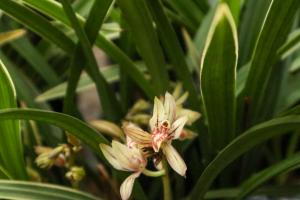What is Plant Science?
Introduction
Plant science is a branch of biology that deals with the study of plants, including their structure, growth, development, metabolism, and molecular biology. It is a wide and diverse field that encompasses many aspects of plant life, from the molecular and genetic level to the ecological and environmental level. In this article, we will explore the world of plant science, its importance, and its applications.
History of Plant Science
The study of plants dates back to ancient times, with many ancient civilizations having documented their use of plants for various purposes, such as medicine, agriculture, and food. However, it was not until the 16th century that botany, the scientific study of plants, began to emerge as a separate scientific discipline. Many early botanists, such as Carolus Linnaeus and Joseph Banks, contributed to the development of plant science, including plant classification and plant anatomy.
Importance of Plant Science
Plant science is important for many reasons. Plants provide us with essential resources such as food, fiber, and fuel. They also contribute to the oxygen we breathe and the removal of carbon dioxide from the atmosphere. Furthermore, plants play an important role in the ecosystem, providing habitat and food for other organisms, and help regulate the climate. Understanding plant science is critical for sustaining the health of our planet and ensuring a sustainable future for generations to come.
Applications of Plant Science
Plant science has many applications, including agriculture, horticulture, forestry, and the pharmaceutical industry. In agriculture, plant science is used to maximize crop yield, improve plant health, and develop disease-resistant varieties. In horticulture, plant science is used to design and maintain gardens, parks, and other green spaces. In forestry, plant science is used to manage and conserve forest ecosystems, as well as to develop sustainable wood products. Finally, in the pharmaceutical industry, plant science is used to discover and develop new medicines and drugs.
The Future of Plant Science
As the world's population continues to grow, the importance of plant science will only increase. Plant science will play a critical role in addressing global challenges such as food security, climate change, and sustainability. New technologies, such as gene editing, will revolutionize plant science, allowing us to develop new plant varieties with enhanced traits and increased resistance to environmental stressors. As we continue to advance our understanding of plant science, we will be better equipped to tackle the challenges of the future.
Conclusion
In conclusion, plant science is a critical and diverse field, encompassing many aspects of plant life. Its importance for sustaining the health of our planet and ensuring a sustainable future cannot be overstated. From the history of plant science to its applications and future prospects, there is much to be learned and explored in this fascinating field.

 how many times do yo...
how many times do yo... how many planted tre...
how many planted tre... how many pine trees ...
how many pine trees ... how many pecan trees...
how many pecan trees... how many plants comp...
how many plants comp... how many plants can ...
how many plants can ... how many plants and ...
how many plants and ... how many pepper plan...
how many pepper plan...






























